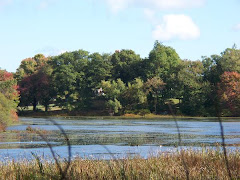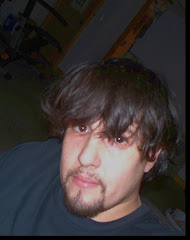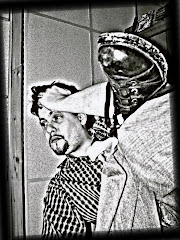
I was told to make a list of "good" questions to ask my surgeon at the preoperative appointment before having bilateral mastectomies. These questions should be based on the materials I was given to read, and my own research on the internet from reliable sites. Additionally, she would answer questions I may have after consulting with the radiation oncologist and medical oncologist about my postoperative treatment.
Really, at this point, I have just a few. They have to do with the popular phrase "breast cancer awareness."
Having worked at Dana-Farber Cancer Institute, and continuing my health information documentation editor speciality in oncology, particularly breast cancer, I would say that I've been very aware, always ahead of the curve, excuse the pun...
Nine years ago when I had my first breast cancer, my focus was intense on keeping myself healthy, making sure I had a fighting chance to prevent the cancer from recurring. After the surgery, I was placed on five years of tamoxifen. I followed up closely with my oncologist with physical exams, blood tests which included tumor markers, and mammograms at six month intervals. When I learned about BRCA1 and BRCA2 gene mutation testing, I inquired about being tested to see if I carried the gene. It was "inconclusive". I have a very strong family history of breast, uterine/ovarian and colon cancer in aunts, my sister, and my mother. This history, and my own diagnosis of early stage breast cancer, put me at high risk for recurrence. The decision was made to alternate the mammograms with breast MRI scans every six months. I continued this regimen over the years faithfully. I also kept aware of new breast cancer treatments, different medications that had gone through appropriate clinical trials and were now FDA approved, and the latest information I could possibly read, every day, while editing the medical documents. I have been a long-time subscriber of several medical journals. I have access to medical information beyond the popular web sites. These include medical sites that provide research results from clinical trials and studies conducted all over the world.
I was fully aware.
In October, as usual, I had my six month mammogram at the Sagoff Breast Imaging Center at the Faulkner Hospital in Boston. I waited for the radiologist to call me into his office and go over the films. I was delighted that he didn't see anything new or different, and everything looked the same as it has for the past eight years. I was relieved. Yet, I knew about a rare type of breast cancer that appears on the top of the skin, and therefore cannot be picked up by a mammogram. It appears around the nipple and areolar complex, and looks very much like eczema, so most people think it's a rash from new detergent or soap.
"Would you mind taking a look at this?" I opened my examining robe and showed him the rash. I did not expect him to tell me it was eczema. What I heard him say is what I expected.
"Well, it does look like this rare type of breast cancer, Paget's. When are you seeing your oncologist?"
Fortunately, I had an appointment with my oncologist the following day,who agreed with the diagnosis of Paget's. A biopsy was scheduled in a few weeks. The pathology showed not only Paget's disease of the breast, but also ductal carcinoma in situ underlying the areolar complex, and invasive ductal carcinoma, approximately 1 cm. The surgeon was suspicious. An MRI was done to look for other possible sites of cancer in the same breast and also the contralateral breast.
What I heard from my surgeon was not what I had expected. The MRI results were positive for a larger, more "significant amount" of cancer. The tumor measured 3.5 cms.
Prior to the MRI, the surgeon and I had discussed mastectomy and reconstructive surgery, but I knew now that the treatment plans would change. The surgery would include a sentinel lymph node biopsy to see if the cancer has spread to the lymph nodes. We also agreed that bilateral mastectomies would make sense in my case. I guess the part of the treatment I wasn't prepared for was the adjuvant radiation and chemotherapy. I thought I could get away with surgery alone, like I did the first time nine years ago. This is a complicated presentation. Paget's, underlying ductal carcinoma in situ, invasive ductal carcinoma, and now a 3.5 cm tumor of which the immunohistochemistry won't be known until after surgery. It may not be the same type of cancer; it may be a more aggressive, fast-growing cancer.
I'm not concerned now about reconstructive surgery, putting myself back together to look anatomically beautiful and feminine again. So I have no questions about what kind of implants, silicone or saline, or tissue expanders, or prostheses. My questions have to do with the success of the chemotherapy, the possibility of being placed on Herceptin, and my ability to tolerate it, the survival percentages over the next 10 to 20 years, and the 3.5 cm tumor's immunohistochemistry, i.e., will it reveal metastatic cancer? Will I wake up one morning and discover a palpable something underneath the skin, my arm, anywhere else in my body? Will the follow-up interval CT scans and bone scans reveal metastases to the liver, lungs, or bones?
Yes, these are very "good" questions to bring to my appointment next week. There is one question no one can really answer. I've done everything I could to be proactive.
Someone, please tell me, how much breast cancer awareness is enough?
















No comments:
Post a Comment